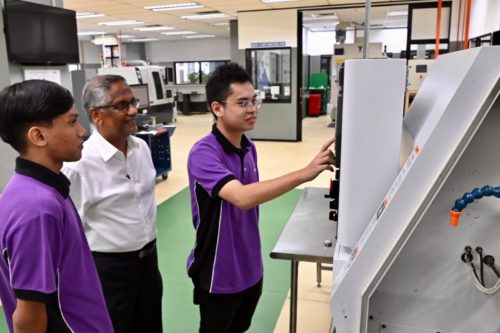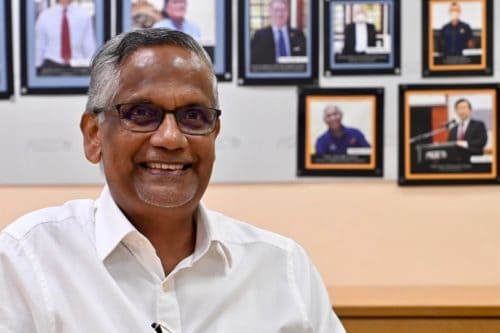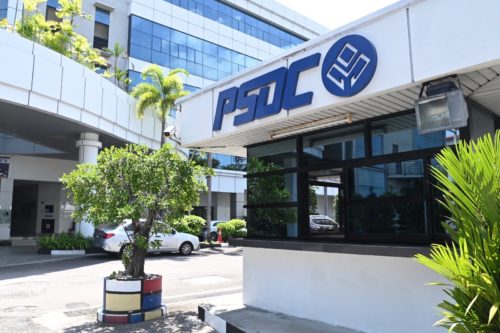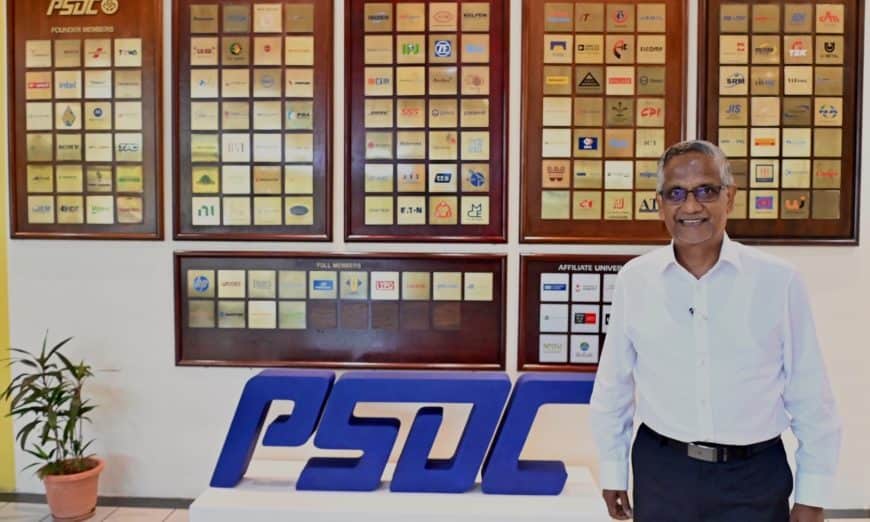THE Penang Skills Development Centre (PSDC) will be focusing on staying ahead of industry trends, doubling down on Technical and Vocational Education and Training (TVET), supporting semiconductor and Global Business Services (GBS) industries, and fostering collaboration with stakeholders to ensure a robust talent pipeline for Malaysia’s evolving industries.
Its new chief executive officer (CEO) Dr Hari Narayanan outlined his vision for PSDC during an interview recently. PSDC welcomed Dr Hari, a seasoned industry veteran, as its new CEO on Jan 3 this year.

Dr Hari, with a rich background in multinational corporations (MNCs) dating back to 1992, has had a remarkable career and retired in 2018. His association with PSDC dates to those Motorola days, where he served in various capacities, including being the managing director of Motorola Solutions Penang operations.
He was also the Universiti Sains Malaysia (USM) Board of Governors chairman and the Asia Pacific University (APU) vice chancellor after he retired from Motorola Solutions.
“It is crucial for PSDC to be proactive in addressing the talent development needs of the evolving industries. We need to keep pace with industry developments,” Dr Hari told Buletin Mutiara after having observed PSDC from both an external and internal perspective.

Dr Hari also emphasised the necessity of doubling or even tripling student enrolment at PSDC to meet the industry demands in the coming years.
“In light of the recent downturn in the semiconductor industry, we express optimism about its resurgence by Q2 this year. With Malaysia playing a significant role in the semiconductor and electrical and electronics (E&E) markets, PSDC aims to support talent development in these sectors.
“We will continue collaborating with multinational corporations (MNCs) to identify and uplift local SMEs, fostering their growth through targeted talent development interventions,” he said.
Reflecting on the importance of TVET, Dr Hari emphasised PSDC’s involvement in the German Dual Vocational Training (GDVT) and announced plans to accelerate alternative TVET programmes to cater to diverse industry needs.
He highlighted potential areas of expansion in TVET, such as mechatronics, quality assurance technology (QAT), automation, industrial management, and information technology (IT).
Dr Hari also acknowledged the surge in demand for skilled talent, especially in the Global Business Services (GBS) sector.
“There is also a crucial need to address the declining interest in STEM (Science, Technology, Engineering, and Mathematics) subjects and the shortage of skilled graduates.
“It is a national problem. It is good that Penang has been engaging young children and spurring their interest in STEM.
“We have the Penang STEM platform which brings together the various independent STEM learning organisations to create a synergistic ecosystem in Penang,” he said.
The founding members of Penang STEM were PSDC, Penang Science Cluster, Tech Dome Penang, Penang Math Platform, and Penang Digital Library.

Dr Hari also called for policy changes at the federal level to promote STEM education among primary and secondary schools and provide flexibility for international students studying in Malaysia.
“Many countries have thrived with international talents,” he added.
Addressing the impact of Generative AI on the workforce, the CEO recognised its potential to enhance efficiency but also acknowledged the possibility of job displacement. He stressed the importance of upskilling and repurposing the workforce to adapt to evolving industry needs.
Story by Christopher Tan
Pix by Law Suun Ting

